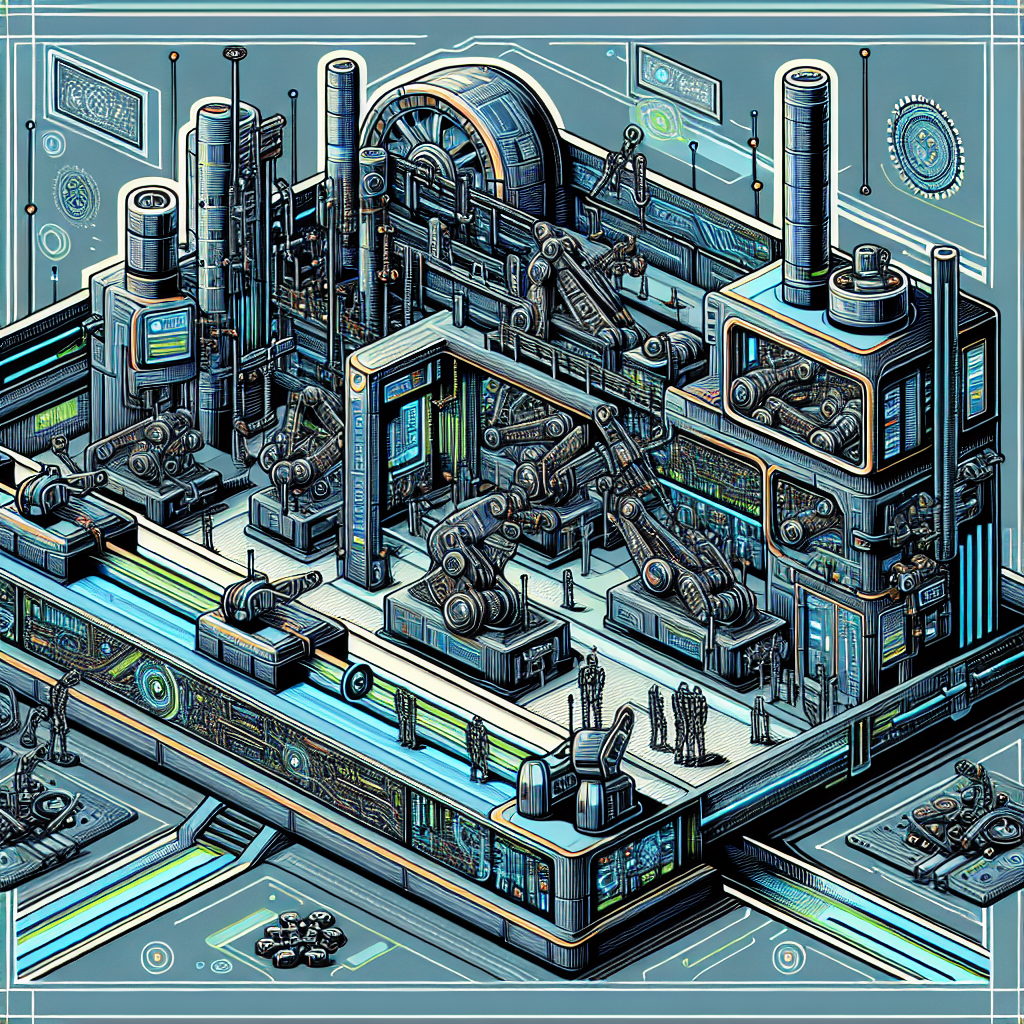Artificial Intelligence (AI) has been revolutionizing various industries, and manufacturing is no exception. AI platforms are playing a crucial role in improving manufacturing processes by increasing efficiency, reducing costs, and enabling more accurate decision-making. In this article, we will explore how AI platforms are transforming the manufacturing sector and the benefits they bring to companies.
AI Platforms in Manufacturing
AI platforms in manufacturing leverage advanced technologies such as machine learning, deep learning, and natural language processing to analyze vast amounts of data and generate valuable insights. These platforms can automate repetitive tasks, predict maintenance issues, optimize production processes, and enhance quality control.
One of the key areas where AI platforms are making a significant impact is in predictive maintenance. By analyzing historical data and real-time sensor data, AI algorithms can predict when a machine is likely to fail and recommend maintenance actions to prevent costly downtime. This proactive approach to maintenance helps manufacturers avoid unexpected breakdowns and improve overall equipment effectiveness.
AI platforms also play a crucial role in optimizing production processes. By analyzing production data in real-time, AI algorithms can identify bottlenecks, inefficiencies, and opportunities for improvement. Manufacturers can use these insights to adjust production schedules, allocate resources more effectively, and maximize output.
In addition, AI platforms enable more accurate quality control by analyzing images, videos, and sensor data to detect defects in products. By automating the inspection process, manufacturers can ensure that only high-quality products reach the market, reducing the risk of recalls and improving customer satisfaction.
Benefits of AI Platforms in Manufacturing
There are several benefits of using AI platforms in manufacturing, including:
1. Increased efficiency: AI platforms can automate repetitive tasks, optimize production processes, and identify opportunities for improvement, leading to increased efficiency and productivity.
2. Cost reduction: By predicting maintenance issues, optimizing production schedules, and enhancing quality control, AI platforms help manufacturers reduce costs associated with downtime, scrap, and rework.
3. Improved decision-making: AI platforms provide valuable insights based on data analysis, enabling manufacturers to make more informed decisions and respond quickly to changing market conditions.
4. Enhanced quality control: By automating the inspection process, AI platforms ensure that only high-quality products reach the market, reducing the risk of defects and recalls.
5. Competitive advantage: Companies that adopt AI platforms in manufacturing gain a competitive edge by increasing efficiency, reducing costs, and improving product quality.
FAQs
Q: How can AI platforms help manufacturers improve maintenance processes?
A: AI platforms can analyze historical data and real-time sensor data to predict when a machine is likely to fail and recommend maintenance actions to prevent downtime.
Q: How do AI platforms optimize production processes?
A: AI platforms analyze production data in real-time to identify bottlenecks, inefficiencies, and opportunities for improvement, enabling manufacturers to adjust production schedules and allocate resources more effectively.
Q: What is the role of AI platforms in quality control?
A: AI platforms automate the inspection process by analyzing images, videos, and sensor data to detect defects in products, ensuring that only high-quality products reach the market.
Q: How can manufacturers benefit from using AI platforms?
A: Manufacturers can increase efficiency, reduce costs, improve decision-making, enhance quality control, and gain a competitive advantage by adopting AI platforms in their manufacturing processes.
In conclusion, AI platforms are transforming the manufacturing sector by increasing efficiency, reducing costs, and improving decision-making. By leveraging advanced technologies such as machine learning and deep learning, manufacturers can optimize production processes, predict maintenance issues, and enhance quality control. Companies that embrace AI platforms in manufacturing gain a competitive edge and position themselves for success in the digital age.

